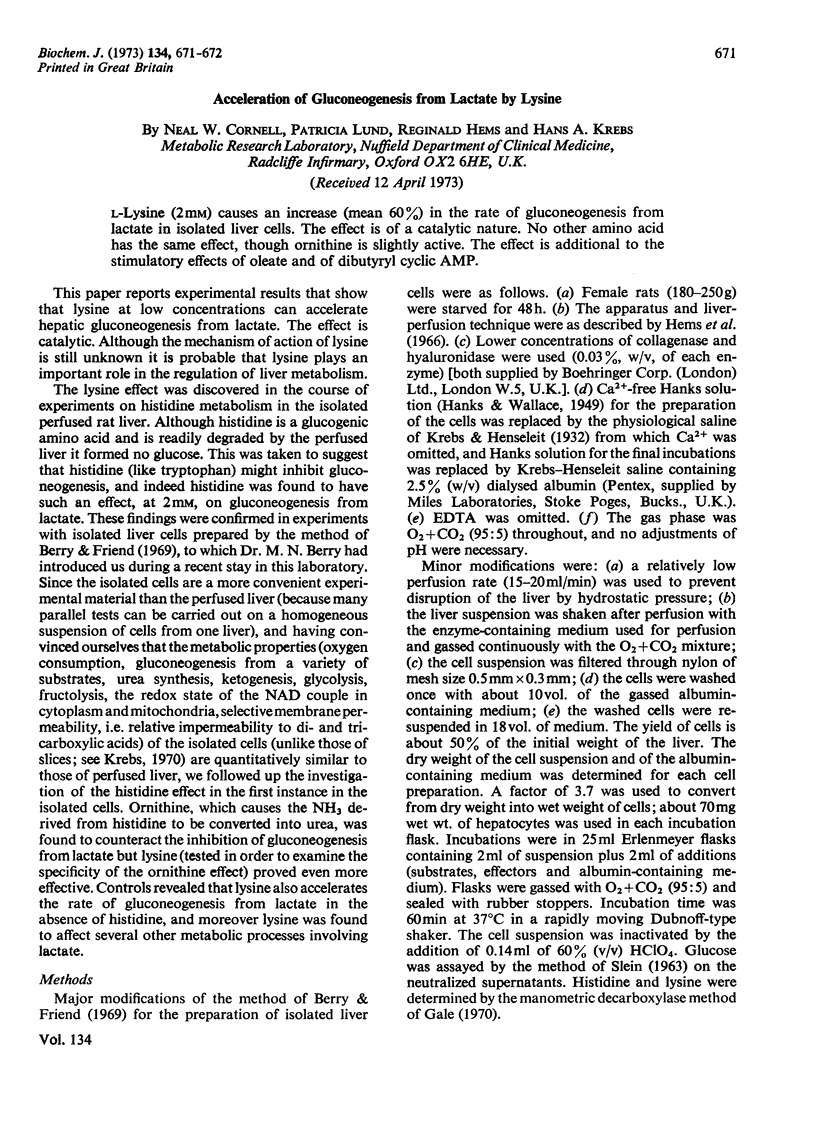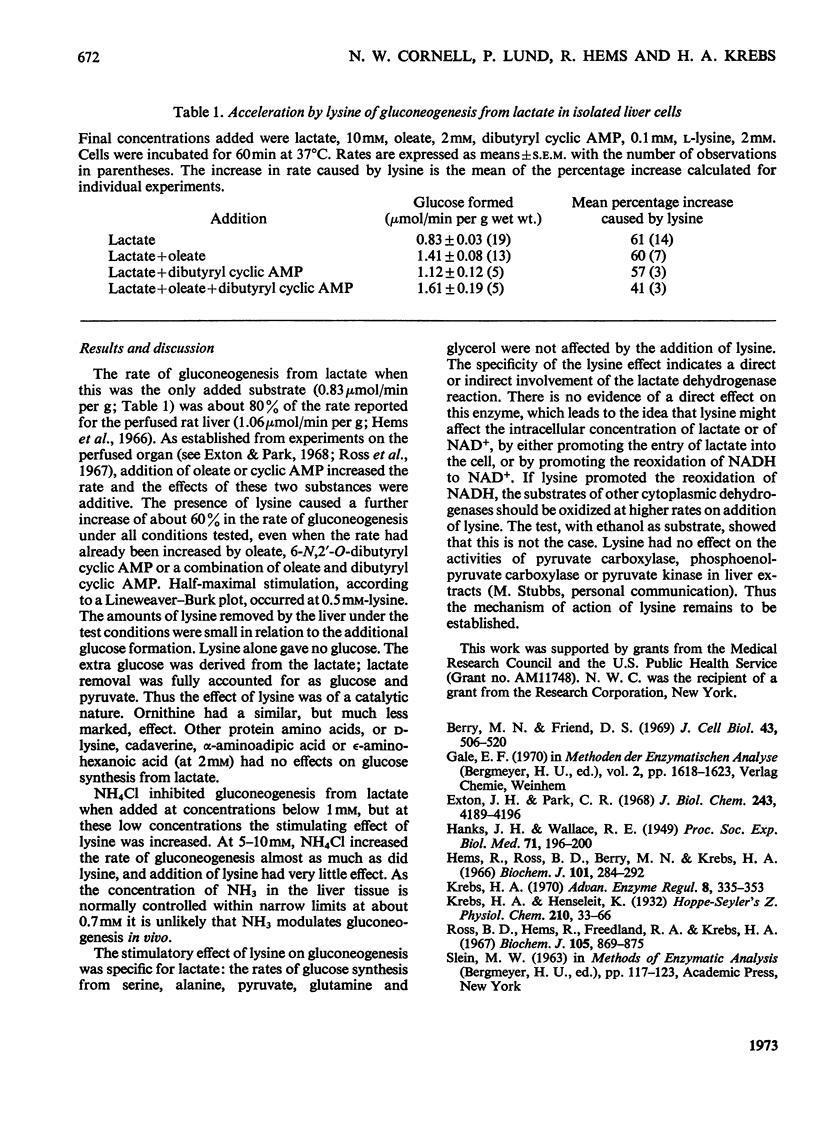Abstract
l-Lysine (2mm) causes an increase (mean 60%) in the rate of gluconeogenesis from lactate in isolated liver cells. The effect is of a catalytic nature. No other amino acid has the same effect, though ornithine is slightly active. The effect is additional to the stimulatory effects of oleate and of dibutyryl cyclic AMP.
Full text
PDF

Selected References
These references are in PubMed. This may not be the complete list of references from this article.
- Berry M. N., Friend D. S. High-yield preparation of isolated rat liver parenchymal cells: a biochemical and fine structural study. J Cell Biol. 1969 Dec;43(3):506–520. doi: 10.1083/jcb.43.3.506. [DOI] [PMC free article] [PubMed] [Google Scholar]
- Exton J. H., Park C. R. Control of gluconeogenesis in liver. II. Effects of glucagon, catecholamines, and adenosine 3',5'-monophosphate on gluconeogenesis in the perfused rat liver. J Biol Chem. 1968 Aug 25;243(16):4189–4196. [PubMed] [Google Scholar]
- Hems R., Ross B. D., Berry M. N., Krebs H. A. Gluconeogenesis in the perfused rat liver. Biochem J. 1966 Nov;101(2):284–292. doi: 10.1042/bj1010284. [DOI] [PMC free article] [PubMed] [Google Scholar]
- Krebs H. A. Rate control of the tricarboxylic acid cycle. Adv Enzyme Regul. 1970;8:335–353. doi: 10.1016/0065-2571(70)90028-2. [DOI] [PubMed] [Google Scholar]
- Ross B. D., Hems R., Freedland R. A., Krebs H. A. Carbohydrate metabolism of the perfused rat liver. Biochem J. 1967 Nov;105(2):869–875. doi: 10.1042/bj1050869. [DOI] [PMC free article] [PubMed] [Google Scholar]


